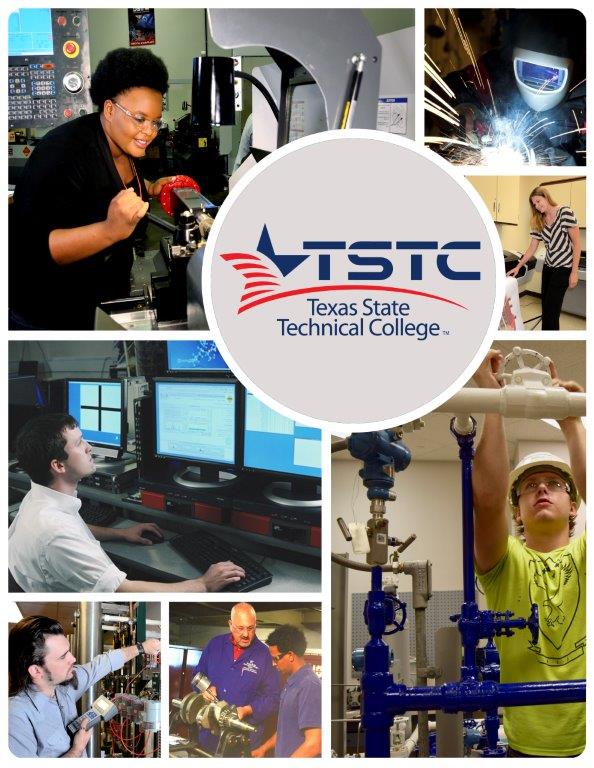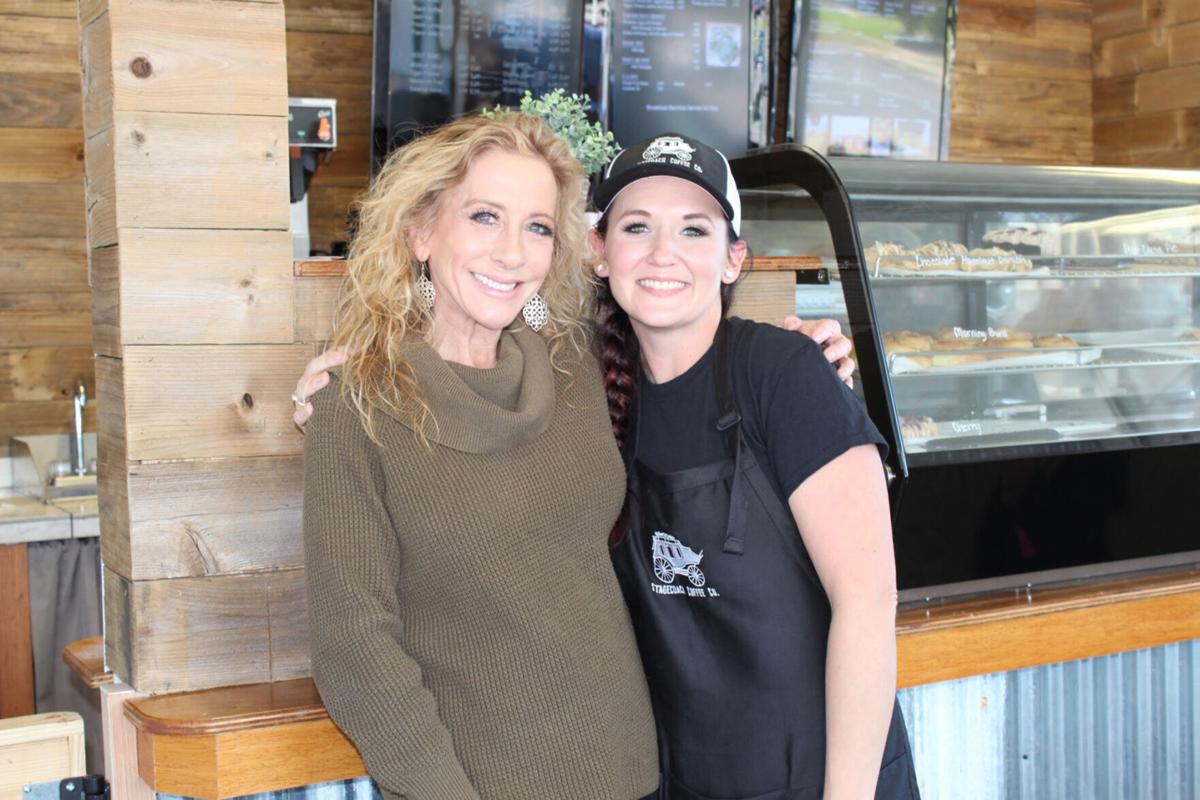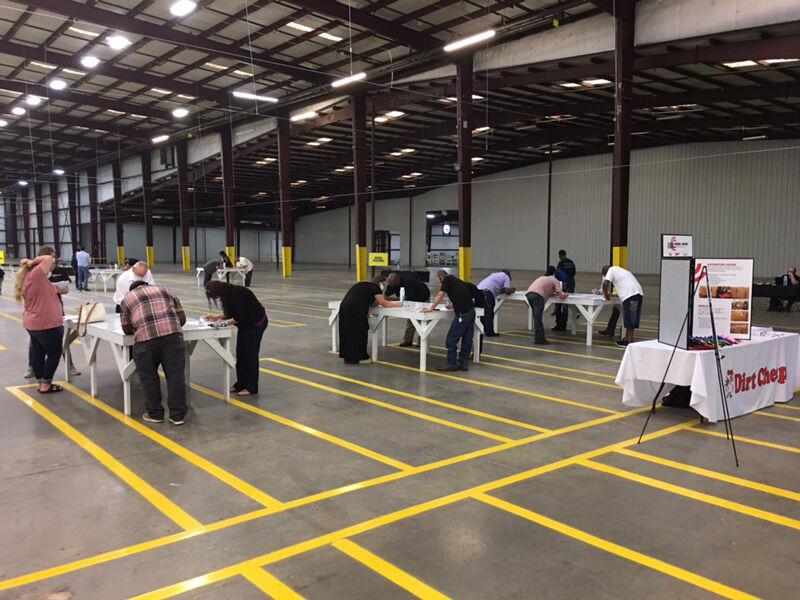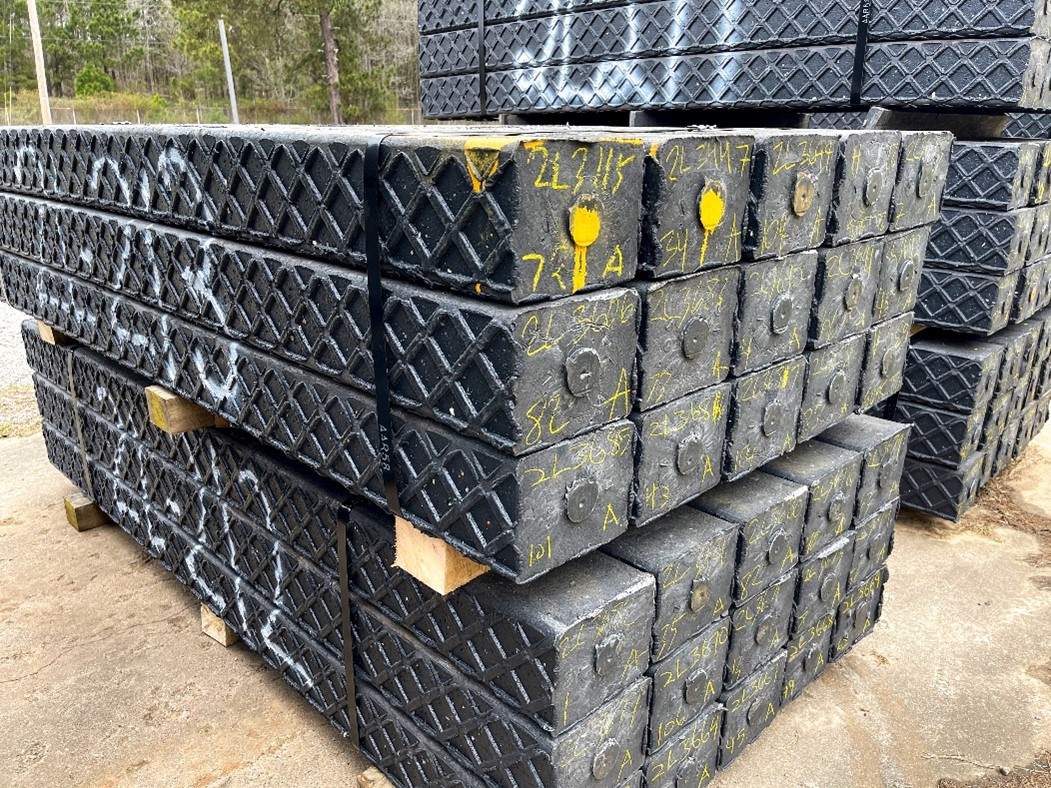MEDCO, TSTC: A PARTNERSHIP MADE IN HEAVEN

29 Mar 2021
When Texas State Technical College decided to open a campus in Marshall, the Marshall Economic Development Corporation knew it would be a winning partnership for both entities. It has been for more than 25 years.
THE BEGINNING OF A PARTNERSHIP
In 1993, the Marshall Economic Development Corporation (MEDCO) was part of the community effort to bring TSTC into Marshall. According to MEDCO Executive Director Rush Harris, the economic development corporation owned the land and the buildings at that point and it was turned over to TSTC in 2010.
"The whole town of Marshall was on board and wanted TSTC ... a place for kids to get an affordable education," Harris said. The education that TSTC affords is different than typical vocational training offering technical aspects. With computers just beginning to develop at that point, everyone was looking at the changes taking place and that have happened in the past 25 years.
"It’s been quite a change in technology in the requirements and skills that are needed for students," Harris said.
In order to get TSTC to locate in Marshall, legislative action was required so that step was completed.
"We are proud to be a partner in that community effort," he said.
THE MISSION
Part of the reason the partnership between MEDCO and TSTC works well is they have similar missions.
“I think our missions kind of parallel each other really. TSTC was legislatively created in 1965 to address economic development and the technical training it takes to do those things and that’s what Rush and the MEDCO folks are all about. All of our efforts are really focused in the same area," TSTC Provost Bart Day said.
Harris agreed with Day, stating there was synergy with all they do. MEDCO focuses on primary jobs, where something is made at one place and it is sold at another, bringing an influx of cash into the local economy.
"It has a higher return generally and TSTC provides the labor for those jobs. They train a lot of the workers for those primary jobs. It makes it so much easier for me to do my job, both to new and companies that are already here, to keep them here by letting them know that there is a source for future employees and training for future employees," Harris said.
Similarly, TSTC's whole premise is to teach to the industries that are found locally, teaching to the demand that is needed.
“Each of our programs is measured against how we are doing on placement. As industry continues to guide those programs that tells us what the market shifts are going to be," Day said. "Our rise and fall if you will all depends on what that market looks like and we train to those exacting standards of the industries around us.” Regionally, each one of the campuses is tailored to what the market looks like, guided by an industry team.
Based off of their funding mechanism, TSTC is actually funded if students receive jobs after completing their degrees or certificates at the college. If job placements are not successful, the school offers a money-back guarantee for students. So far, not one check has been cut to a student unable to secure a job, Day said. TSTC's state funding is also performance based.
“We don’t get compensated if they don’t get a job,” he said.
"We value the relationship. They help us attract business and help retain businesses in Marshall while providing a pipeline of employees," Harris said.
While being a Marshallite, moving off and coming back, Harris said he sees what a valuable tool TSTC is to the town's economy.
"It’s an extreme advantage we have and I would love to see more of our local students taking advantage of the opportunities that are here. I think it’s something yet to come," Harris said.
“It’s something we continue to work on together. Little bit by little bit, we are gaining ground," Day said.
PROGRAMS/NEEDS IN MARSHALL
Within Marshall's laborshed (an area defined by a 45-minute drive to work), there is a demand in process operations, diesel mechanics, linemen, computer programming, cybersecurity, software development, welding and CDL.
Most popular on the Marshall campus at TSTC is the linemen program, process operations and the diesel mechanic programs. For those unfamiliar with process operations, it's essentially taking raw materials and mass producing them into a product. Eastman Chemical Company in Longview is a prime example of a process operations company.
TSTC and MEDCO also partner to help existing businesses that may need help training employees and customize that training.
“We have a separate piece of the team that goes out and explores those opportunities. It’s kind of a menu driven thing ... it’s kind of like I need this, this, not so much this. They will design a course and bring in the right faculty to teach them on the short term stuff. We’ve done that with a number of businesses,” Day said.
Companies that are seeking funding for help in that area can apply for the Skills Development Fund, state money that is waiting for people to make use of it for training. TSTC has people who can help businesses apply for that and then companies can implement that training at no cost.
MEDCO also helps the job force with finding employees.
"We regularly get requests from new businesses or existing businesses for different employees with different skillsets. We relay that ... if not on a daily basis, then periodically, to TSTC about what we are hearing, about what the need is," Harris said. "TSTC has even offered if we have an industry that needs a sufficient number of its employees trained, they can gear a course specifically for that employer. That can be a tremendous benefit for someone who has a specialized process that just needs some slight technical tweaking that they can change the process and use it for that employer."
IMPROVING LIFE/FAMILIES
With training and a new job, TSTC can help students make more than the median income for an entire Marshall family.
With a $15,000 investment in a degree, a student can be making $50,000 in their first year.
In the linemen program, employees can be making $80,000 to $100,000 a year after graduation.
"They will work hard for their money but it's a terrific job," Day said. "There is a retirement wave coming and the need is not slowing."
Currently, TSTC has graduated 3,400 students from the Marshall campus and more than 100,000 statewide over its 10 campuses.
For more information on TSTC go to www.tstc.edu/campuses/marshall.
Source: Marshall News Messenger
More Topics




